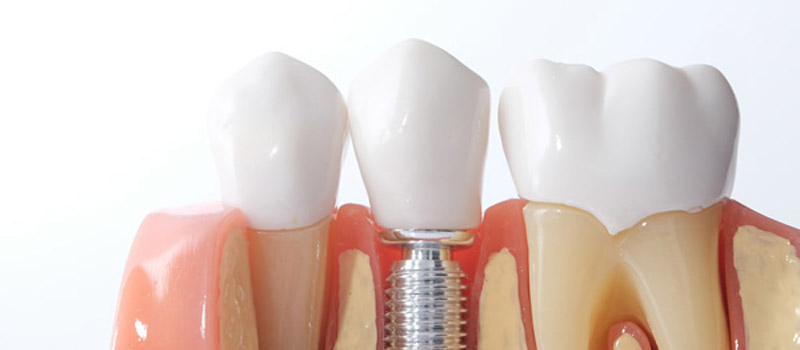
What is a dental
implant?
A dental implant (endosseous implant or fixture) is a surgical component that interfaces
with the bone of the jaw or skull to help a dental prosthesis, for example, a
crown, connect, denture, facial prosthesis or to go about as an orthodontic
anchor.
Benefits
A dental implant can do miracles for one’s
confidence, since it feels and resembles a natural tooth. Numerous individuals
who were timid about smiling as a result of a space from a lost tooth, feel
much better after a dental implant. Past the feel, a dental implant
additionally makes it less demanding to eat and talk, in light of the fact that
a titanium post is secured specifically in the jaw holds the implant set up.
The advantages of dental implants in a nutshell:
- Improved appearance
- Betterment in speech
- Enhanced comfort
- Easier eating
- Improved self-esteem
- Improved oral health
- Durability
- Convenience
Care
Great oral wellbeing propensities are required for
the implant. You should floss once per day and brush your teeth a few times a
day. Likewise, you should visit your dental practitioner like clockwork and schedule
frequent cleaning appointments. Try not chewing on hard edibles such as ice or
hard candy, you might break your teeth and the crown. If you smoke, you should
quit. Smoking can cause your bones to weaken, resulting in implant failure.
Following these tips, you won’t ever have a problem with your implants. With
proper care, your implants should last a life time!
Procedure
Considering that you are thinking about dental
implants, you need solid gums and healthy, durable bones for the implant. On
the off chance that your bone is too thin or delicate and unfit to help an
implant, you may require a bone graft. Or then again if there isn't sufficient
bone height in the upper jaw or the sinuses are excessively near the jaw you
may require a sinus lift. A sinus lift is a medical procedure performed by an
oral specialist or a periodontist. Amid medical procedure bone is added to the
upper jaw between the jaw and the maxillary sinuses, in the region of the
molars and premolars. Implants are typically more costly than different approaches
for tooth substitution. The implant itself can cost about $1,000 and $2,000
each, and there is an extra cost for the crown that is affixed to the dental
implant. In the event that you are feeling the loss of a tooth and trust a dental
implant may be the correct answer for you, begin by counseling with your
dentist.
There are two kinds of dental implants considered to
be alright for use by dental experts. They are:

· Endosteal Implants
These are the most well-known kind of implant and
are precisely set directly into the jawbone, they are additionally called
root-frame implants. These are ordinarily formed like little screws, cylinders
or plates. All together for an endosteal implant to be fruitful, the bone
should be deep and sufficiently wide to give a stable and secure foundation.
Once the encompassing gum tissue has recuperated, a second medical procedure is
expected to attach a post to the first implant. At long last, a fake tooth (or
teeth) is joined to the post-separately, or assembled on a group or denture.
· Subperiosteal Implant
This sort of implant comprises of a metal casing
that is fitted onto the jawbone simply under the gum tissue. As the gums
recuperate, the frame ends up fixed to the jawbone. Posts, which are joined to
the frame, obtrude through the gums. Likewise with endosteal implants, the
artificial teeth are then mounted to the posts.